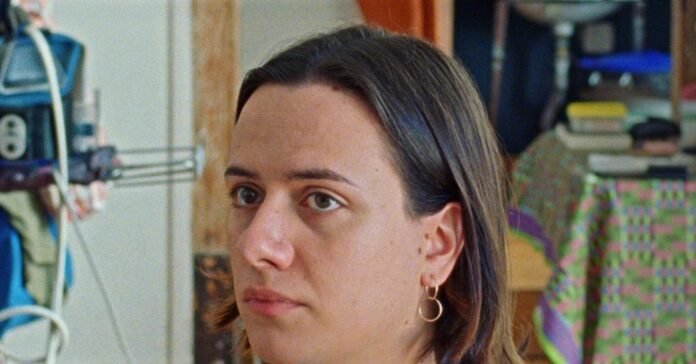Dir: Paula Tomás Marques. Portugal. 2025. 70mins
A undertaking that walks the road between biographical drama and conceptual artwork piece, the experimental Portuguese LGBTQ+ undertakingTwo Occasions João Liberada challenges the conventions of the biopic and takes on the patriarchal constructions that also maintain sway over a lot of cinematic storytelling. It’s concerning the making of a misguided movie a few fictional historic character, João Liberada, a gender non-conforming shepherdess who was focused and imprisoned by the Inquisition in 18th century Portugal, and is prone to be of area of interest enchantment.
Challenges the conventions of the biopic
The undertaking is the characteristic debut from Paula Tomás Marques, who has made a number of brief movies exploring gender and sexuality, together with 2019’s In Case Of Hearth, which gained Greatest Pupil Brief at San Sebastian, and 2024’s Dildotectónica. Two Occasions João Liberada is a movie that was clearly made on a restricted funds, and the ambition of a undertaking that entails interval particulars, particular results and a supernatural visitation ought to be applauded. That stated, the image’s modest manufacturing values and unpolished performances will possible restrict its attain to audiences who share the movie’s prominently displayed politics.
Marques shares the writing duties on the undertaking with June João, the transfemme actress who stars within the movie and offers a narration. João, whose character within the movie shares the identical title, explains that she accepted the function within the movie about Liberada regardless of grave reservations concerning the undertaking’s strategy and, particularly, the movie’s director Diogo (André Tecedeiro). It’s a little bit of a thankless function for Tecedeiro, who’s mainly the autumn man and punching bag, representing the evils of cis male entitlement and ignorance.
João finds herself more and more at odds with Diogo over the course that the movie is taking. And rightly so – for his overuse of hackneyed music selections alone, Diogo deserves a stint in director jail. However João’s fundamental difficulty is that the movie is preoccupied with the tragedy of its topic, dwelling on a soggily-staged suicide sequence. João’s argument is that there’s as a lot to have fun in Liberada’s radical life as there may be to grieve within the method of its ending. And the ghost of João Liberada, relatively shonkily added to a number of nighttime scenes, apparently agrees along with her. The voice of the ghost, distorted and accompanied by glitchy visible interference, speaks to João, waking her from her sleep (“Lady, wake the fuck up!”) to bitch concerning the undertaking (“Schubert? Actually?”).
The argument the image makes is that any historic biographical illustration is basically untrustworthy as a result of it’s seen via the lens of the writer telling the story. Within the case of Diogo the director, which means dwelling on the tortured, tragic societal reject side of the character. It’s a good level. However giving Liberada a voice that speaks in fashionable idioms and chimes with fashionable political sensibilities is arguably simply as a lot of a perversion.
Manufacturing firm: Paula Tomás Marques, Cristiana Cruz Forte
Worldwide gross sales: Portugal Movie gross sales@portugalfilm.org
Producers: Paula Tomás Marques, Cristiana Cruz Forte
Screenplay: June João, Paula Tomás Marques
Cinematography: Fresca Malfalda
Manufacturing design: Eloísa d’Ascensão
Enhancing: Jorge Jácome
Music: Maria João Petrucci, Rodrigo Vaiapraia
Most important forged: June João, André Tecedeiro, Jenny Larrue, Caio Amado, Eloísa d’Ascensão, Tiago Aires Lêdo, Alice Azevedo
